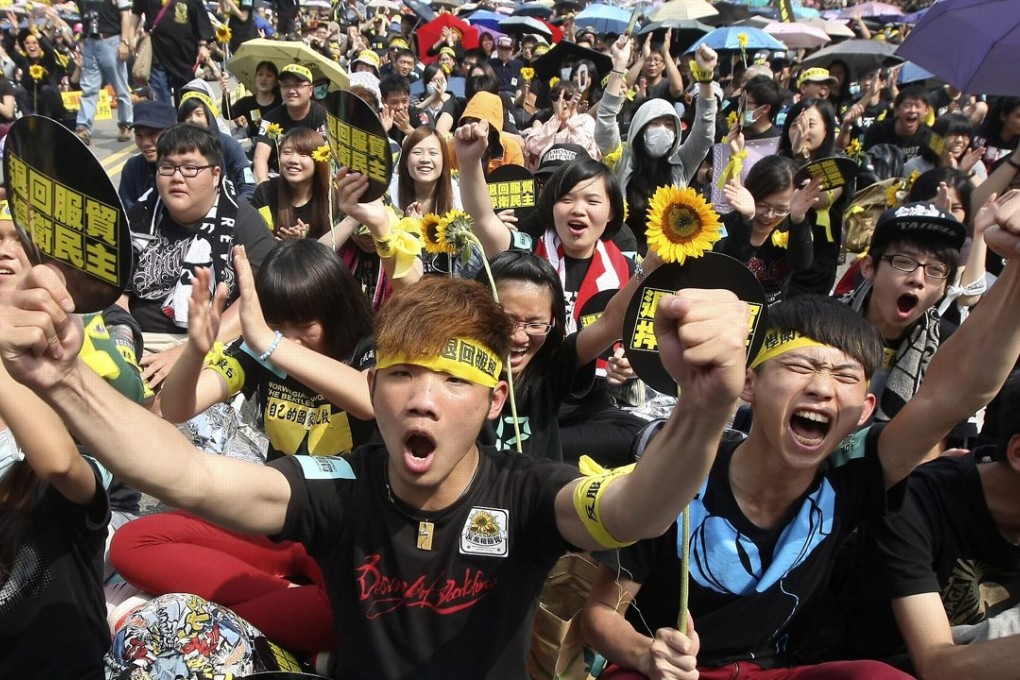In Taiwan, the old guard struggles to win the hearts and minds of the young
Jonathan Sullivan says the use of a common phrase – ‘kids don’t know any better’ – among elders in Taiwanese politics is telling of paternalistic attitudes, but the younger generation is politically active and agitating for change

When erstwhile Kuomintang presidential candidate Hung Hsiu-chu, 67, was asked to comment on the suicide of a troubled young man protesting at the national curriculum last summer, her response was sympathetic and in character. “It’s a terrible shame,” she said, adding that “kids don’t know any better” (小孩子不懂事 ).
READ MORE: Taiwan’s opposition leader highlights risk of close ties with China as election looms
The phrase, implying that younger generations don’t understand worldly affairs, is commonly used in Taiwan as a platitude by the supposedly older and wiser to comment on upsets and misguided life choices. It is usually a benign, sometimes indulgent, dismissal of the naive or uninformed opinions of younger people, the verbal equivalent of a pat on the head. In Taiwan, it is also an attitude that has long been deeply embedded in the political culture. But it is no longer sustainable, with significant implications for the forthcoming presidential and legislative elections and the future shape of Taiwanese politics and cross-strait relations.

The notion that wise elders should take care of decision-making has a long history across many cultures
Yet, the legacy of one-party rule and quasi-Confucian notions did not expire with the coming of elections. Political elites retained their sense, and carefully framed narrative, about knowing what was best for the people. And many citizens, conditioned by decades of priming through the media and education systems, continued to have a narrow understanding of what democracy meant, sometimes complaining to pollsters that democracy was too messy, divisive and complicated.
There is no democratic tradition in Chinese culture, and the late political scientist Tianjian Shi argued that many Taiwanese came to understand democracy via the idea of minben (民本 ), a restricted form of government by benevolent elites that he called “guardianship democracy”. More recent research shows the attitudes towards authority that underpin support for this form of government are not widespread among young Taiwanese. Those aged 19-35 are more supportive of democracy as a political system, and accepting of the noise and contention that accompanies it. And while they are more likely to call themselves Taiwanese, it is identification with democracy that is a crucial part of this trend.
Those who have grown up under a democratic system take for granted liberal democratic norms like freedom of speech, accountability and transparency to a much greater extent than their elders, who had to “learn” them. This attitude change represents a significant challenge to the foundations of “guardian democracy”, which is magnified by the popularisation of digital and social media.
